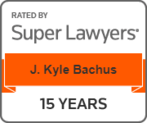Wrongful Death Claims And Structured Settlement Payouts
Suddenly losing a loved one in an accident is devastating in more ways than one. A wrongful death claim can help you and your family start to rebuild your lives by demanding compensation from the responsible party. Part of bringing an effective wrongful death claim is ensuring that any settlement you receive meets your long-term needs. Fortunately, there are some ways that you can structure your settlement to preserve your assets and plan for your future. One of your options is a structured settlement. Our Colorado attorneys for wrongful death claims explain.
Personal Injury Lawyers » Practice Areas » Wrongful Death » Wrongful Death Claims And Structured Settlement Payouts
- What Is A Structured Settlement?
- What Are the Pros and Cons of a Structured Settlement Agreement?
- Do Payments Vary for Structured Settlements Based on Market Return?
- Colorado Laws for Structured Settlement – Colorado Structured Settlement Protection Act – C.R.S. 13-23-101
- United States Law Regarding Structured Settlements
- Structured Settlements and Contract Law
- Does an Entire Wrongful Death Settlement Have To Be Structured Into Periodic Payments?
- Can a Structured Settlement Be Awarded by Jury Trial?
- Attorneys for Structured Settlements in Wrongful Death Cases
- Visit Our Office Locations Across Colorado & Beyond
- Related Wrongful Death Resources
- You Deserve Fair Compensation
What Is A Structured Settlement?
A structured settlement is an agreement where a lawsuit judgment is paid out over a period of time rather than in a lump sum. The purpose of a structured settlement is to provide long-term payments to the plaintiffs. Typically, the payments are funded through a purchased annuity paid according to the amount and schedule stated in the negotiated legal judgment.
What Are the Pros and Cons of a Structured Settlement Agreement?
The pros of a structured settlement are:
- The security of knowing you have income far into the future
- A steady and predictable amount of income
- Acknowledgment and planning for long-term needs
- Flexibility to pay for expenses like a mortgage, daily necessities or education
- Most structured annuities for wrongful death settlements are guaranteed by state law
- Multiple structures available, including a combination of lump sum and structured payments
The cons of a structured settlement are:
- It’s very hard, if not impossible, to change the terms of the agreement once it’s in place
- Depending on placement in a trust or custodial account, a structured settlement may impact access to public funds
- There may not be any provision for inflation or economic downturns
- The rate of return may be lower than it might be with aggressive investing
- Waiting to receive payments
Do Payments Vary for Structured Settlements Based on Market Return?
Structured settlements typically do not vary based on market return. Instead, they are paid in the form of an annuity with a flat rate payment at the time intervals stated in the agreement. The company that provides the annuity bears the risk of their own investments. But for the payee, generally, they’re guaranteed to receive whatever amount is stated in the settlement contract.
Colorado Laws for Structured Settlement – Colorado Structured Settlement Protection Act – C.R.S. 13-23-101
Colorado laws for structured settlements come from three sources: contract law, federal law and the Colorado Structured Settlement Protection Act <sup>1</sup>. The Colorado Act is C.R.S. 13-23-101 et. seq. The law acknowledges the validity of structured settlements for the resolution of tort claims. The Colorado Structured Settlement Protection Act defines a structured settlement as an arrangement for periodic payment of damages established by a settlement in resolution of a tort claim. (C.R.S. 13-23-102(13)). The payee may transfer the obligation for consideration. However, the Act requires certain disclosures such as gross/net transfer amounts and expenses. The payee may cancel the transfer agreement within three business days of signing. C.R.S. 13-23-104 specifies that a transfer may not violate any law or court order, and the payee must be advised to seek independent professional advice regarding the transfer agreement.
United States Law Regarding Structured Settlements
United States law for structured settlements is found in 26 U.S.C. § 589, the Victims of Terrorism Relief Act <sup>2</sup>. The law places a high tax on structured settlement factoring transactions unless approved by a court order. The law also creates other rules for selling structured settlement rights.
Structured Settlements and Contract Law
Finally, contract law creates standards that apply to the interpretation and enforcement of structured settlements. For example, in Rumbin v. Utica Mutual Ins. Co., the court said that parties may include contractual provisions in a structured settlement agreement as long as those laws are not directly in conflict with existing statutes. The Rumbin court distinguished between the right and the power to assign payee rights and whether a transfer in violation of an agreement is void or if the offending party simply pays damages. Your attorney for structured settlements in wrongful death cases can help you examine the big picture in order to take all of the contractual considerations into account when deciding how to resolve your case.
Does an Entire Wrongful Death Settlement Have To Be Structured Into Periodic Payments?
No. If you choose to pursue a structured settlement, you can choose from several flexible options. It’s possible to set up your compensation to receive only periodic payments. However, you can also make arrangements to receive a recurring payment and an initial lump sum payment upfront. You might pursue this if there are immediate needs, like medical bills, as well as long-term needs like providing for the living expenses of the surviving family. As you consider whether to accept a settlement offer, it’s essential to work with your attorney to value any proposed dollar amounts and their respective timelines carefully. Structured settlement annuities are typically less costly to insurers than immediate lump-sum payments. As you evaluate various offers, understand that it’s not always an apples-to-apples comparison of dollars. Carefully determine whether a proposed settlement is fair based on your actual losses and how you receive your payments.
Can a Structured Settlement Be Awarded by Jury Trial?
No, a structured settlement cannot be awarded by jury trial. The only way to receive one is by reaching a settlement agreement with the other party in the case. A structured settlement is more complex than a standard jury judgment. A judgment that a court is going to award at trial is a lump-sum payment. The availability of a structured settlement is one factor to consider when deciding whether to take the case to trial.
Attorneys for Structured Settlements in Wrongful Death Cases
Are you considering a structured settlement in a wrongful death case? What is the average settlement for a wrongful death case? How do you calculate a wrongful death settlement? We know you have questions about how a structured settlement works and whether it’s right for you. Our attorneys for wrongful death cases have answers. Our Elite Litigation Group handles complex claims and issues relating to wrongful death cases. The way that you receive your compensation is vital to ensure that it provides for your immediate and long-term needs. We have the experience and resources to address your legal claim comprehensively to help you through this difficult time. Contact us today to begin.
Visit Our Office Locations Across Colorado & Beyond
Serving Clients Nationwide
Related Wrongful Death Resources
You Deserve Fair Compensation
Don’t let the insurance companies intimidate you into accepting less than you deserve. We’re ready to fight for you.




























